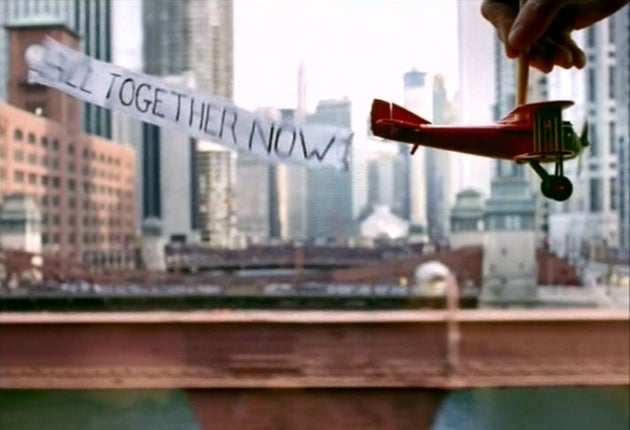Claire Beale On Advertising: Free your mind for this essential holiday read

Chris Anderson, the editor-in-chief of US Wired, has this story about King Gillette, the razor guy. In 1895, Gillette was a salesman peddling cork-lined bottle caps. But things weren't going too well in the cork-lined bottle-cap business: too much competition.
Gillette figured he needed to find something he could sell to the same people over and over and over. Then one day, when he was trying to shave with a blunt cut-throat razor, inspiration came to him: how about a razor that was so cheap to make, men threw it away when it became blunt – and bought another?
He then hit on a whole new approach to marketing. He created two products: one was a razor without a blade, the other was the blade itself. The really clever bit was to give away as many of the razors as he could. He gave them to other companies who then passed them on to their customers as free gifts or special offers. Banks gave them away to new account holders in a "shave and save" scheme, and they were free with everything from chewing gum and packets of tea to bags of flour. The razors found their way into millions of households through this freebie bonanza. But the razors were useless without the blades – and the blades weren't free.
Chris Anderson tells the story of King Gillette because it illustrates one of the key principles of his new book, Free, the latest must-read title in adland. The ad industry likes to have a book – one that everyone's talking about, with a marketing theory that's fashionable to drop into important meetings and lunchtime chat. A book that makes adlanders feel they're at the razor-sharp edge of marketing thinking.
Books such as Anderson's The Long Tail, which argues that the future of business is about "selling less of more"; Nudge by Richard Thaler and Cass Sunstein, discussing how to encourage, or nudge, people to make the right choices in life; and Malcolm Gladwell's recent Outliers, about what makes some people more successful than others. Now, it's Free.
Anderson argues that developments in new technology and the rise of the internet have reduced production and distribution costs for many goods and services to zero – but that there's money to be made from giving things away for nothing. For example, bands who post their music online for free in order to build a fan base that they can they sell concert tickets or T-shirts to (which is really the King Gillette model all over again).
If you followed last week's story about Matthew Robson, the 15-year-old intern who shook up the City with his research into teen media habits, you'll remember that he was clear about one thing: teenagers don't like paying for anything. They don't have to. There are so many ways to get something for nothing that, well, why not, even if it's technically illegal? That's "freeconomics" for you.
Google, online gaming, music albums and even air travel (free seats but you'll pay if you want to take any baggage with you, even if you want a pee) – there are lots of free things available. You're no doubt already taking advantage of many of them.
But Free has its critics – Gladwell laid into the concept in The New Yorker. He questions whether freeconomics has much depth, because a lot of stuff that's available for nothing is actually of such low quality that people, literally, don't value it; consider 95 per cent of the free films on YouTube, for example.
But as the advertising and marketing industries pack their suitcases for the summer, you can be sure that they'll have copies of Free tucked between their T-shirts and shorts. And you can bet that the rest of us will be getting a bit more for a bit less as a result.
Best in Show: Budweiser (DDB)
You don't need me to tell you how important music is in making an OK advert great. DDB's new campaign for Budweiser is a good example. The ad is shot from a moving train as its travels through downtown Chicago. As the camera pans across the rooftops we see a cast of characters – a troop of drummers, an inflatable panda – all doing their thing to the tune of The Hours' cover of The Beatles' "All Together Now". The direction is masterly, but it's the music that makes it such a cheery, likeable commercial.
Join our commenting forum
Join thought-provoking conversations, follow other Independent readers and see their replies
Comments
Bookmark popover
Removed from bookmarks